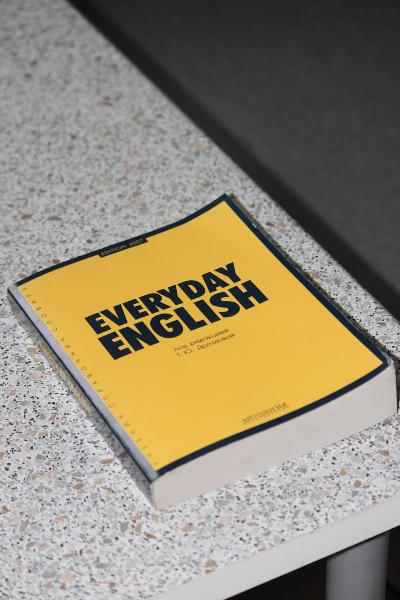The Evolving Enigma: Confusing Grammar in Modern English

Strong 8k brings an ultra-HD IPTV experience to your living room and your pocket.
English, the ubiquitous language of our times, is renowned for its rich tapestry of words and its capacity for nuanced expression. However, this very dynamism can make it a baffling beast for learners and even native speakers. The modern era, with its breakneck pace of communication and informal settings, has thrown some traditional grammar rules into a tizzy. This article delves into some of the most common grammatical conundrums plaguing the modern English landscape.
A Dance with Prepositions:
Prepositions, those tiny words that bridge nouns and verbs, can be a source of endless frustration. The difference between "affect" and "effect" is a classic example. While "affect" implies to influence, "effect" signifies a result. "The new policy will likely affect employee morale" versus "The policy has had a negative effect on productivity."
Social media and informal writing often blur the lines, with sentences like "This news doesn't affect me" becoming commonplace. However, for clarity and formal writing, sticking to the distinction is crucial.
Then there's the ever-present debate on "in" versus "on" with regards to time. Is it "in" or "on" the weekend? The answer leans towards "on" for specific days ("on Monday") and "in" for broader periods ("in the weekend").
The Comma Chameleon:
The comma, a seemingly simple punctuation mark, can transform a sentence. A misplaced comma can alter the entire meaning. Consider: "Let's eat, Grandma." versus "Let's eat Grandma."
The Oxford comma, used before the conjunction in a list ("apples, oranges, and bananas"), is a point of contention. While not strictly incorrect to omit it, the Oxford comma adds clarity, especially in complex lists.
The comma splice, the dreaded fusion of two independent clauses with just a comma, is another common pitfall. The correct approach is to separate the clauses with a semicolon or a conjunction ("The meeting was a disaster; everyone was arguing").
Those Tricky Tenses:
Verb tenses can make your head spin. The past perfect tense, used for actions completed before another past action ("By the time I arrived, the party had already started"), often gets replaced by the simpler past tense in casual speech.
The present perfect continuous tense ("I have been working on this project all day") can sometimes be confused with the simple present perfect ("I have worked on this project for a week"). Understanding the subtle difference between ongoing action and completed action within a specific timeframe is key. Visit the profile https://www.instagram.com/learn_new_vocabulary/ for more English tips.
Subject-Verb Agreement:
Subject-verb agreement, the cornerstone of clear communication, can be tricky with collective nouns. While "the team is strong," "the team were disappointed" might seem correct, the singular verb "is" is generally preferred for singular units even if composed of multiple individuals.
They vs. Them:
Pronoun usage can be a minefield. The singular "they" used for non-binary individuals is a contentious but increasingly accepted practice. It's important to be mindful of the context and the individual's preference.
The objective case "them" often replaces the nominative "they" in informal speech ("Between you and them, I don't know"). Sticking to the subject-verb agreement principle ensures clarity ("They like ice cream").
A World of Contractions:
Contractions, like "don't" and "can't," are a hallmark of informal speech and writing. However, overusing them can make writing seem sloppy. Knowing when to use contractions and when to opt for the full form adds a layer of sophistication.
Is it "Anyways" or "Anyway"?
"Anyways" is a non-standard adverb gaining traction in casual speech. While technically incorrect, its widespread use makes it a grey area. For formal writing, however, "anyway" remains the preferred choice.
The Rise of Informal Language:
The rise of social media and instant messaging has ushered in a wave of informal language. Abbreviations like "LOL" and emojis are commonplace, but their use should be confined to informal settings. Formal writing requires a more nuanced and professional tone.
Embrace the Evolution, But Know the Rules:
Language is a living entity, constantly evolving. New words are coined, and grammatical norms shift. However, a solid foundation in traditional grammar is essential for clear and effective communication, especially in formal settings.
The key is to embrace the dynamism of the language while remaining mindful of the established rules. Reading widely, both classic and contemporary works can help one navigate the ever-changing landscape of English grammar.
Masters of Modernity: Tools to Tame the Grammatical Tempest
The digital age has brought with it a plethora of resources to conquer the challenges of modern English grammar. Here are some helpful tools:
Online Grammar Resources: Websites like Grammarly and ProWritingAid offer real-time grammar checks, identifying common errors and suggesting corrections. These tools can be invaluable for catching typos, subject-verb agreement issues, and comma mishaps.
Grammar Apps: Grammar learning apps like Duolingo and Babbel can make mastering grammar an interactive and engaging process. Bite-sized lessons and gamified exercises can make learning enjoyable, especially for those who find traditional grammar books daunting.
Style Guides: Style guides like the Chicago Manual of Style and the Associated Press Stylebook provide clear guidelines on grammar, punctuation, and usage. These resources are particularly helpful for professional writers and editors who need to adhere to specific style conventions.
Online Dictionaries and Thesauruses: Dictionaries like Merriam-Webster and online thesauruses like Thesaurus.com can be lifesavers when grappling with word choice and nuance. Looking up unfamiliar words and exploring synonyms can elevate your writing and ensure you're using the right word for the right context.
Language Blogs and Podcasts: Language enthusiasts often create blogs and podcasts dedicated to the intricacies of English grammar. These resources offer insights and explanations in an engaging format, making learning about grammar feel less like a chore.
Beyond the Basics: Embracing Nuance
While mastering the fundamentals of grammar is crucial, effective communication goes beyond just avoiding errors. Here are some additional tips for navigating the complexities of modern English:
Context is King: The meaning and intent of your writing should always guide your choice of words and grammatical structures. Formal writing demands a different approach than a casual email to a friend.
Read Aloud: Reading your writing aloud can help you identify awkward phrasing, clunky sentences, and misplaced commas. The flow and rhythm of your writing become readily apparent when you hear it spoken.
Seek Feedback: Don't be afraid to ask a trusted friend, colleague, or writing tutor to review your work. A fresh pair of eyes can catch errors you might have missed and offer valuable suggestions.
Practice Makes Perfect: The more you write, the more comfortable you become with the nuances of grammar. Regular writing practice allows you to experiment with different styles and refine your communication skills.
The Takeaway: A Language for All Times
The ever-evolving nature of English grammar can be perplexing at times. However, by understanding the core principles and embracing the tools available, navigating the modern linguistic landscape becomes a manageable, and even enjoyable, task.
Remember, language is a powerful tool for communication and connection. Mastering its intricacies allows you to express yourself clearly, confidently, and effectively, regardless of the era.
Note: IndiBlogHub features both user-submitted and editorial content. We do not verify third-party contributions. Read our Disclaimer and Privacy Policyfor details.


